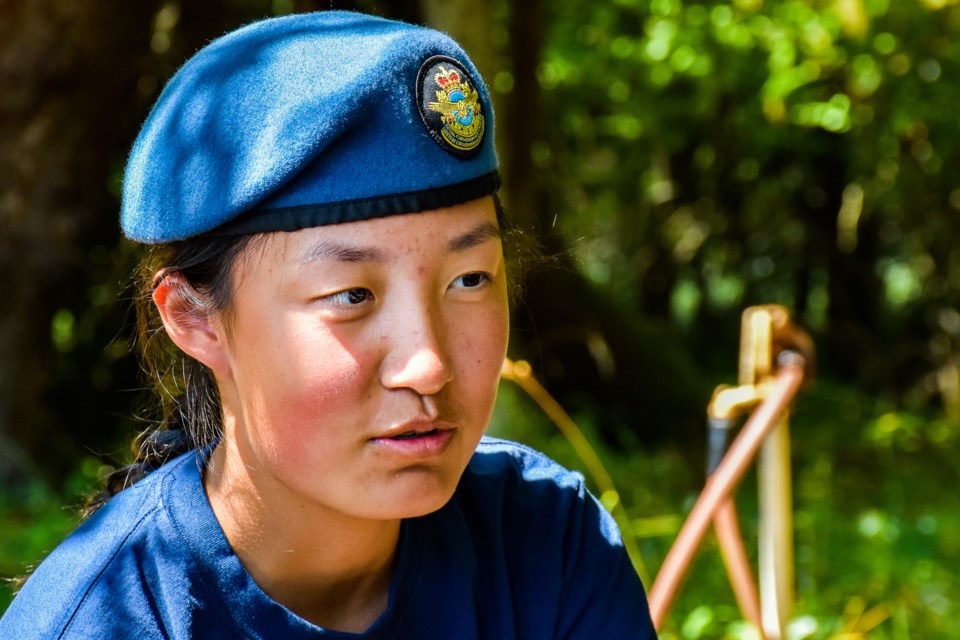Annie Li used to struggle to push herself.
“I was very shy and not the kind of person who could take on a challenge,” she told The Tri-City News. “I was a bit whiny.”
Then, just before the Port Coquitlam resident started high school in Port Moody, her mother suggested she join the cadets.
In the beginning, she completed all the same training the other cadets did, from parade duty and orienteering to biathlon and first aid. It wasn’t until the summer of 2017 that Li signed up for survival training at a cadet summer training program on Vancouver Island.
“I wanted to prove to everyone that I was strong and capable. I guess that I wanted to show everyone that I could handle things,” she said.
She chalks up that change in attitude to one of her superiors, a woman Li said gave her the bug to become a “hardcore survivalist.”
Then, after excelling as one of nearly 50,000 cadets in Canada, Li was selected as one of the 4.4% to teach the next generation.
Now, she is guiding students into the forest, showing them how to pack a rucksack, construct improvised shelters and build a fire (or everything but sparking the tinder with a fire ban in place). The course lasts from two to seven weeks, each day combining new skills with physical training and mental tests.
In the "psych hike," cadets are taken into the woods in a simulated survival situation meant to test the “seven enemies of survival": cold, fatigue, hunger, thirst, pain, boredom and loneliness.
But Li is never far away.
“We supervise and patrol to make sure they are safe or that they don’t have a mental breakdown,” she said.
In another test known as "the duo," cadets are paired in a partner survival situation in which they are expected to build a fire, set snares for wild animals, assemble fishing gear and send a signal to an aircraft.
“They have to be creative with the limited gear they have,” said Li.
Then they do it all at night, something Li said she briefs the cadets for so they don’t get traumatized.
As she gets closer to aging out of the cadets, Li said her time in there has given her direction. With all her survival and first aid training, she wants to stay outside and work towards becoming a medical officer in the army.
“I just like being on the ground, I guess,” she said.



